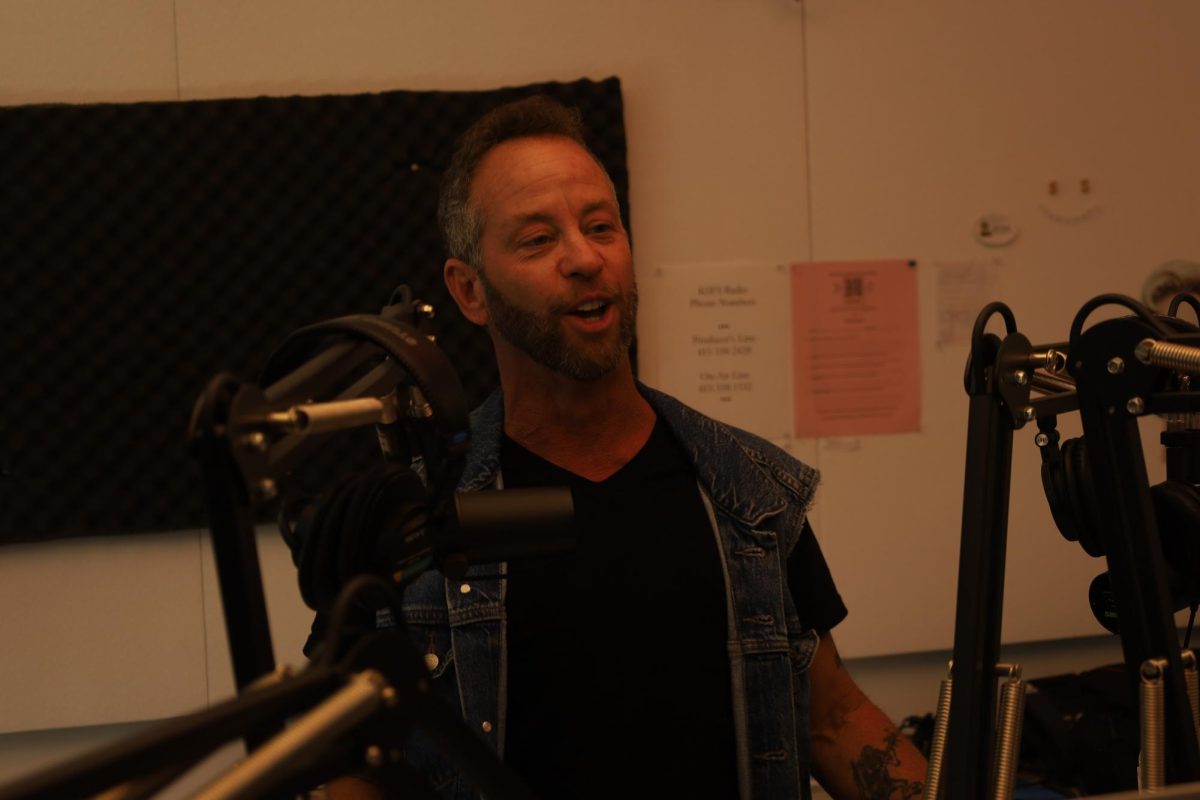A mock wall stood at the entrance of Malcolm X Plaza between the stage and the Cesar Chavez Student Center as a simulation of the barrier in West Bank in Israel to draw attention to the current affairs on that side of the world.

The General Union of Palestine Students hosted a rally to commemorate Israeli Apartheid Week April 17. The rally at SF State is part of a series of international events to draw attention to the global and political policies the state of Israel holds against Palestinians, according to GUPS president Lubna Morrar.
Morrar said she holds Western imperialism accountable for the current state of affairs in Palestine.
“I just think that the general public is also very confused of what this conflict is,” Morrar said. “It’s very much normal repeated history of Western imperialism and global capitalism.”
International relations professor Mahmood Monshipouri said that it would take an entire course to understand the complexities of the Israel and Palestine conflict. Monshipouri described the conflict as a dispute over land in Israel, West Bank and Gaza.
“The U.S. foreign policy all along has been to create two states,” Monshipouri said. “One state called Palestine, the other state called Israel. Israeli’s politicians, like (Prime Minister Benjamin) Netanyahu, they talked of two state solutions, but they do not walk the walk up to this day.”
According to Monshipouri, the Jewish people in Israel declared independence from the state of Palestine in 1948 despite a U.N. commission that recommended the two separate states of Israel and Palestine.

Monshipouri said that although a lot of youth in Europe and the United States sympathize with Palestinians, he is not very optimistic about the future of Palestine.
“When I listen to my Israeli friends, I go to the conferences, I go to the conventions, when I listen to scholars, when I listen to experts, I don’t think the Israelis are going to give up the land,” Monshipouri said. “I don’t see it in their heart to part.”
Members of GUPS and the greater Palestinian community in the Bay Area gave speeches and performed poetry at the SF State event.
“America could care less,” GUPS secretary Abdula Harrara said in his poem. “How could any Zionist tell me this is painless because they are ‘peaceful-ist’? Tell that to the 8-year-old boy who’s left legless.”
Professor Rabab Abdulhadi, associate professor of race and resistance studies recited a poem in Arabic and spoke about the new classes she was teaching.Ir
Abdulhadi said that the Arab and Muslim Ethnicities and Diasporas Initiative minor that she teaches was approved by the Academic Senate on April 14.

Other student organizations like the Student Kouncil of Intertribal Nations and MEChA voiced their support for GUPS and sent representatives to speak out about similar struggles that they faced in their homeland.
Students from the SF State Hillel watched from a table set up nearby. Keren Erlich, the president of SF State’s Israel Team and a member of Hillel said they were present to contribute another side of the argument.
“We’re here to listen to what they have to say and provide another perspective if anyone has any questions,” Erlich said.
The event finished with people dancing dabka, a traditional Palestinian dance, around the quad.
Students like Arthur Savandsky, a studio art major, stopped by to watch.
“I kind of have been out of the loop with groups on campus, so it was good to be reminded that there’s a lot of work to be done, a lot of changes to be made,” Savandsky said.
Morrar said she was pleased to know that people were listening to what the demonstrators had to say.
“If we affected anybody, we could just affect one person and that would still make the world a better place,” Morrar said.





